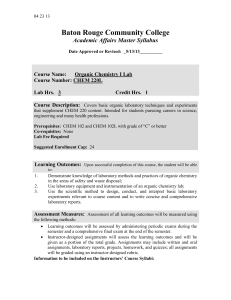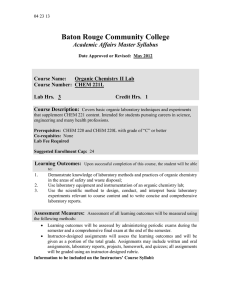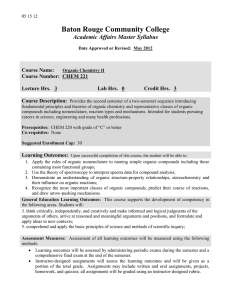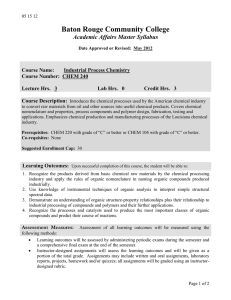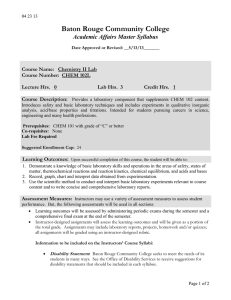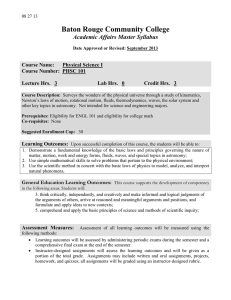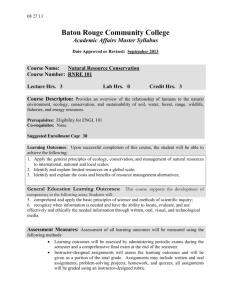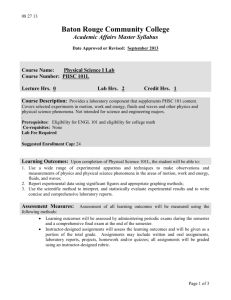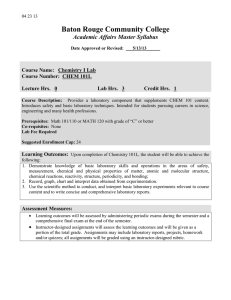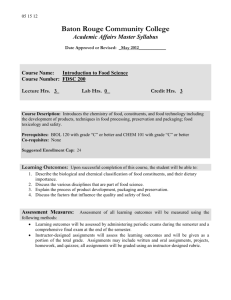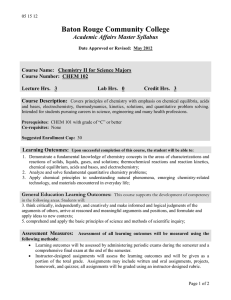Baton Rouge Community College Academic Affairs Master Syllabus
advertisement
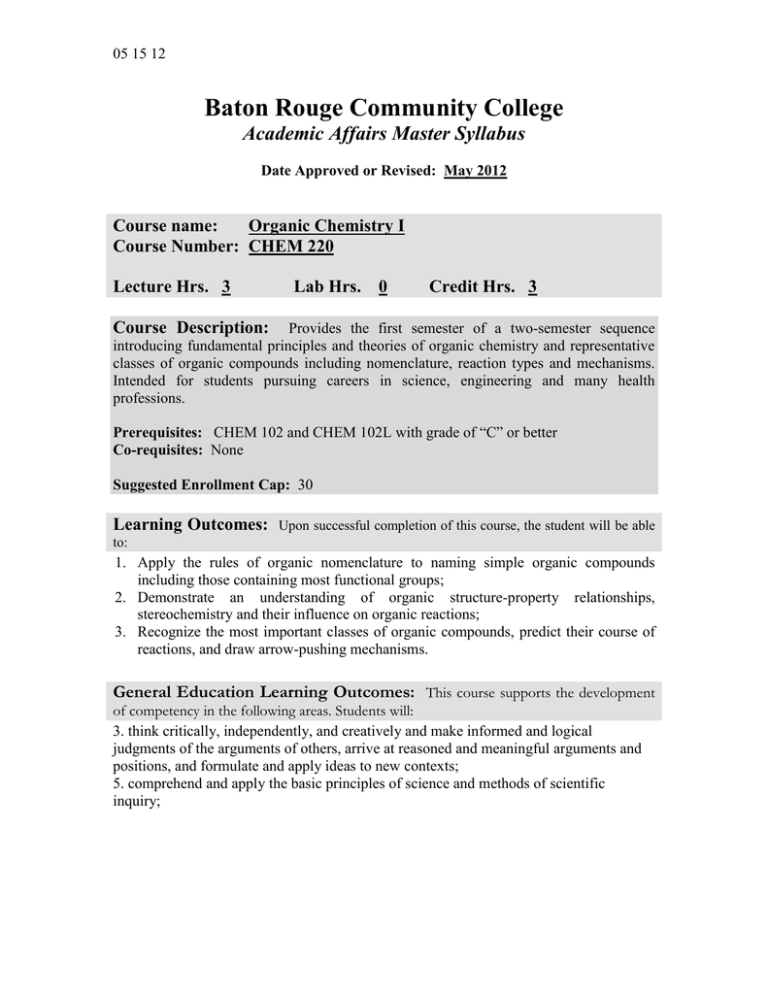
05 15 12 Baton Rouge Community College Academic Affairs Master Syllabus Date Approved or Revised: May 2012 Course name: Organic Chemistry I Course Number: CHEM 220 Lecture Hrs. 3 Lab Hrs. 0 Credit Hrs. 3 Course Description: Provides the first semester of a two-semester sequence introducing fundamental principles and theories of organic chemistry and representative classes of organic compounds including nomenclature, reaction types and mechanisms. Intended for students pursuing careers in science, engineering and many health professions. Prerequisites: CHEM 102 and CHEM 102L with grade of “C” or better Co-requisites: None Suggested Enrollment Cap: 30 Learning Outcomes: Upon successful completion of this course, the student will be able to: 1. Apply the rules of organic nomenclature to naming simple organic compounds including those containing most functional groups; 2. Demonstrate an understanding of organic structure-property relationships, stereochemistry and their influence on organic reactions; 3. Recognize the most important classes of organic compounds, predict their course of reactions, and draw arrow-pushing mechanisms. General Education Learning Outcomes: This course supports the development of competency in the following areas. Students will: 3. think critically, independently, and creatively and make informed and logical judgments of the arguments of others, arrive at reasoned and meaningful arguments and positions, and formulate and apply ideas to new contexts; 5. comprehend and apply the basic principles of science and methods of scientific inquiry; 05 15 12 Assessment Measures: Assessment of all learning outcomes will be measured using the following methods: Learning outcomes will be assessed by administering periodic exams during the semester and a comprehensive final exam at the end of the semester. Instructor-designed assignments will assess the learning outcomes and will be given as a portion of the total grade. Assignments may include written and oral assignments, projects, homework, and quizzes; all assignments will be graded using an instructor-designed rubric. Information to be included on the Instructor’s Course Syllabi: Disability Statement: Baton Rouge Community College seeks to meet the needs of its students in many ways. See the Office of Disability Services to receive suggestions for disability statements that should be included in each syllabus. Grading: The College grading policy should be included in the course syllabus. Any special practices should also go here. This should include the instructor’s and/or the department’s policy for make-up work. For example in a speech course, “Speeches not given on due date will receive no grade higher than a sixty” or “Make-up work will not be accepted after the last day of class.” Attendance Policy: Include the overall attendance policy of the college. Instructors may want to add additional information in individual syllabi to meet the needs of their courses. General Policies: Instructors’ policy on the use of things such as beepers and cell phones and/or hand held programmable calculators should be covered in this section. Cheating and Plagiarism: This must be included in all syllabi and should include the penalties for incidents in a given class. Students should have a clear idea of what constitutes cheating in a given course. Safety Concerns: In some programs this may be a major issue. For example, “No student will be allowed in the safety lab without safety glasses.” General statements such as, “Items that may be harmful to one’s self or others should not be brought to class.” Library/ Learning Resources: Since the development of the total person is part of our mission, assignments in the library and/or the Learning Resources Center should be included to assist students in enhancing skills and in using resources. Students should be encouraged to use the library for reading enjoyment as part of lifelong learning. 05 15 12 Expanded Course Outline: I. II. III. IV. V. V. V. V. V. V. Molecular Representation Acids and Bases Alkanes and Cycloalkanes Stereochemistry Alkenes Alkynes Eliminations Substitutions Radicals Alcohols
